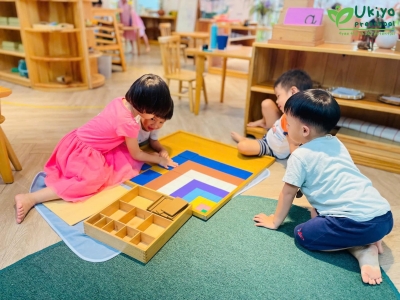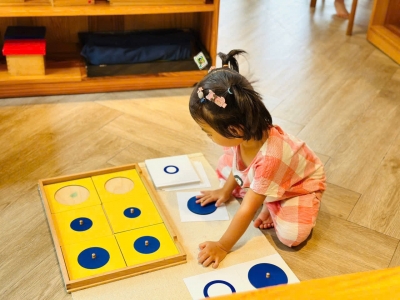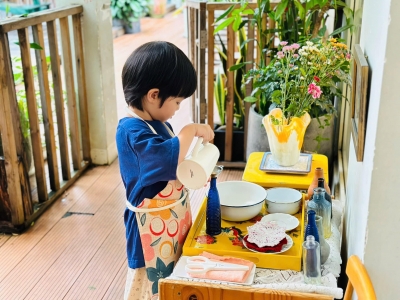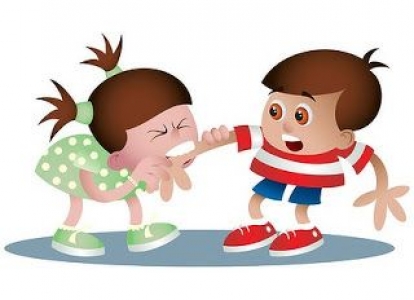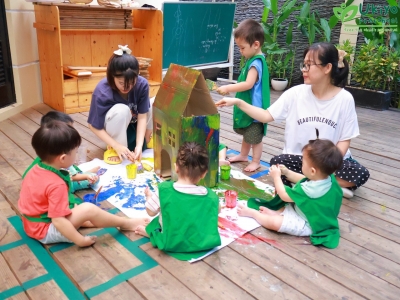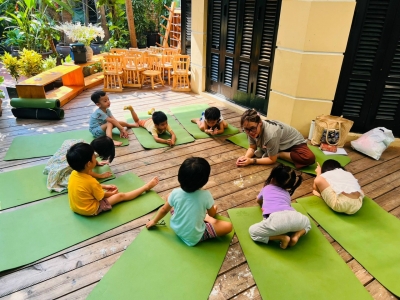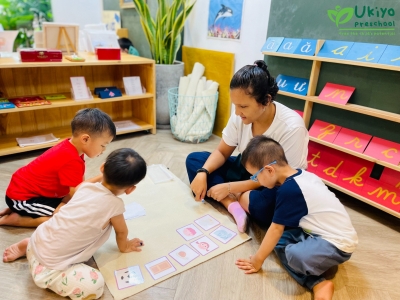PARENTS CAN BE TOO LOVING
How easy it is to let our love make us unwise in the way we treat our children. I do not mean this in the obvious sense – it is an ignorant or foolish mother who picks up her little one every time he cries so that he learns the habit of crying for caresses – but in a more subtle and unsuspected way.
For instance when a baby stretches out for some object that attracts his attention and we give it to him, he lets it fall and then cries for it again. What does our love so often make us do but take away the interesting object when the baby has dropped it two or three times and our patience is worn out. We say he is “naughty”, “doing it on purpose”, that “he mustn’t be allowed to behave like this or he will grow up willful and capricious”, and so even in his cradle our love is devising for him his future character which we see as something we must mold by means of corrections and discipline.
But just for a moment think of that tiny baby again. He stretches for his rattle, mother holds it to him, the little fingers close round the object then they open again and it falls. He wants it again, the little fingers close and open. Watch him, forget that he is tediously picking up and dropping his rattle – that is your point of view – see him watching his own little fingers, see how he is interested in them.
He is developing his muscles. If you watch him closely, you may see perhaps the little fingers open one by one instead of all together – that is a great progress. Gradually he is becoming master of his own fingers, he chuckles with joy as he drops the rattle and you patiently pick it up for him. There is no naughtiness in him, he has no need of external discipline, soon he will drop this occupation of his own accord and perhaps his little toes will become for him next the most interesting things in the world.
So many mothers love their children dearly, but they have not yet learnt to be wise in their loving. After all, it is no surprise, when it is only of recent years that educationalists have begun to understand that a small child has within himself a spontaneous urge that causes him to reach out towards the material world around him, in a manner parallel to the way he exercises his muscles over and over again and so brings about their development.
It is tremendously important that we should understand the spontaneous way in which the child develops himself. We are so anxious to help, to us it seems the burden of growth and development is so great that we must do all we can to make the pathway easy. And so our love may easily overreach itself and by providing too many urges, too many cautions and corrections, turn the child from the natural path of his development and cause his energy to be diverted so that it returns upon itself, leading to many nervous illnesses, fear, laziness, mischievousness, and a host of other undesirable characteristics which could easily have been avoided.
Our way of trying to banish these unpleasant manifestations is to correct even more, to try harder than ever to force the character of the little child along the paths we believe it should take for its own good. And instead of bringing about the result we so earnestly and lovingly desire, we drive the child further and further into himself, he is upset and cries capriciously as though he enjoys having tantrums for their own sake. In reality there is nothing more unnatural than peevishness when a child is in good physical health. A child that is developing naturally should keep himself constantly and happily occupied, if he has at hand little things he can handle himself, objects that are interesting.
It is on this principle of the development of the child through handling interesting objects that I have built up my method of education. For over thirty years now I have worked with small children and through watching their development have provided the means for their education. And out of all this experience one thing above all others stands out of first importance.
We can love our children so dearly that it makes us blind to what is best for them. We can desire so eagerly that they shall grow into fine men and women that we correct and frustrate them at every turn without once realizing that they have within themselves the power of their own development.
We cannot see that a child who is interested and actively carrying out little plans and movements of his own is building up will power and self-control. When a child is tirelessly trying to make patterns with his blocks simply because he is interested, there is no need for outside discipline, the child is disciplining himself.
Please don’t mistake me when I say that love leads so many of us to unnecessary fault finding. I do not mean that you should never correct your children, but I do say that ‘don’ts’ are far less effective – indeed they are often definitely harmful when they fill a young child with fear or resentment – than providing him with some alternative activity at which he may work joyfully, forgetting all about the previous activity or behavior which you were anxious for him to stop.
But in your anxiety to help his development, do not go to the other extreme and try to help him too much. The spontaneous urge towards development, which is within the child, dictates its own pace. It is the part of a wise and loving parent to stand by, to watch the little one’s activities, to observe his growth rather than to try to force it. The mother should only give help when it is needed.
So often a little child is thought of in terms of wax. We believe that in our hands lies his future as a worthy citizen, that we must work the wax, squeezing it into the form we wish, while it is soft and pliable. It is true that the child’s mind is wax-like, just as the child’s muscles may be altered in the course of their development by specially designed exercises.
But – the parallel is complete – if we interfere with the normal growth and development of the child’s muscles we easily destroy the physical growth of the child. So also if we interfere and try forcibly to direct the child’s intelligence and mental growth out of the normal course of its development, we may distort the character in subtle ways.
If we are wise we shall mix understanding with our love. It is marvelous how courageously this tender, small child asserts the inner principle of his growth against adverse conditions. But he is using valuable energy to do so. If we hinder him he fights against us, if we are unwise in our loving we set ourselves in the opposite camp. But if we are wise, we watch his development with understanding, we gain his confidence, and we share in the full joy of his happy childhood.
From Montessori Speaks to Parents Book
Others



